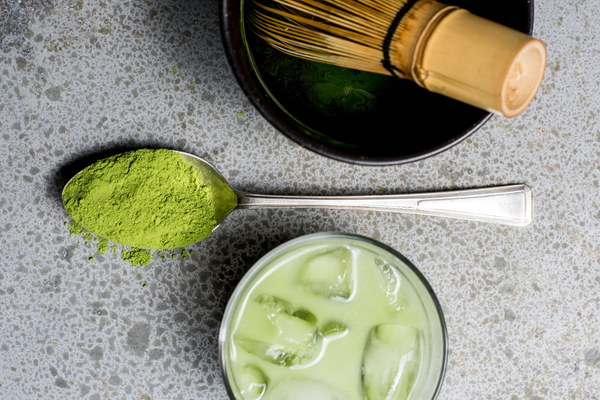Essential Herbs for Home Remedy A Guide to Common StomachBuilding Medicines
In the realm of traditional medicine, there are numerous herbs that have been used for centuries to support digestive health and bolster the stomach's strength. For those looking to maintain a healthy gut at home, incorporating these common stomach-building medicines can be a natural and effective way to promote overall wellness. Here's a comprehensive guide to some of the most popular and accessible herbs used for stomach care.
1. Ginger (Zingiber officinale)
Ginger is a well-known herb that has been used in traditional medicine for its anti-inflammatory and carminative properties. It can help alleviate nausea, indigestion, and bloating, making it a favorite among those with sensitive stomachs. Its active compounds, gingerols and shogaols, are believed to enhance digestion by increasing the production of digestive juices.
2. Peppermint (Mentha × piperita)
Peppermint is another popular herb with a long history of use in gastrointestinal disorders. Its menthol content is known to relax the muscles of the gastrointestinal tract, which can help relieve symptoms of irritable bowel syndrome (IBS) and other stomachaches. Peppermint tea is a particularly soothing remedy for those who suffer from indigestion or gas.
3. Chamomile (Matricaria recutita)
Chamomile is a gentle herb often used to calm the nervous system, and it can also soothe an upset stomach. Its anti-inflammatory properties can help reduce inflammation in the gut, and it is commonly used to treat conditions like gastritis and colitis. Chamomile tea is a comforting drink for those looking to settle their stomach after a meal.
4. Fennel (Foeniculum vulgare)
Fennel seeds have been used for centuries to aid digestion. They contain volatile oils that stimulate the production of bile and digestive enzymes, which help break down food more efficiently. Fennel is also known for its carminative properties, making it effective for reducing gas and bloating.

5. Dandelion (Taraxacum officinale)
Dandelion is a versatile herb that has a long list of health benefits, including supporting the liver and gallbladder. It is rich in vitamins and minerals, and its diuretic properties can help improve digestion by flushing out excess fluids. Dandelion root is often used in tea or as a supplement to support overall stomach health.
6. Licorice (Glycyrrhiza uralensis)
Licorice root has been used in traditional Chinese medicine for thousands of years to soothe the stomach and relieve heartburn. It contains glycyrrhizin, a compound that has anti-ulcer properties and can help reduce stomach acid. However, licorice should be used with caution, as excessive consumption can have adverse effects on blood pressure and potassium levels.
7. Slippery Elm (Ulmus fulva)
Slippery Elm is known for its mucilage content, which coats and soothes the mucosal lining of the digestive tract. This can be particularly helpful for those with stomach ulcers or gastritis. The herb is often taken as a tea or in supplement form to provide relief from gastrointestinal discomfort.
How to Use These Herbs at Home
When using these herbs at home, it's important to follow a few guidelines:
- Consult a Healthcare Professional: Before starting any new herbal regimen, it's wise to consult with a healthcare provider, especially if you have existing health conditions or are taking other medications.
- Quality Matters: Choose high-quality, organic herbs to ensure purity and minimize the risk of contamination.
- Dosage: Follow recommended dosages provided by herbalists or on product labels. Overconsumption can lead to adverse effects.
- Preparation: Herbs can be consumed in various forms, including teas, tinctures, capsules, and powders. Choose the method that suits your preference and lifestyle.
By incorporating these natural remedies into your daily routine, you can support your digestive health and enjoy the benefits of traditional medicine right at home. Remember, while these herbs are generally safe for most people, it's always best to err on the side of caution and seek professional advice.









